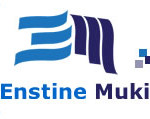Every week, somebody tells me blogging is dead. And every week, another one of my students gets their first affiliate sale. The truth is, blogging is very much alive. It has just changed its skin. If you’d like to know how to blog in an era of TikTok and podcasting, let me just frame it for you: it’s not about trends—it is about purpose and consistency.
Blogging today is different from it used to be in 2012. Simply sitting down and writing a diary entry will no longer bring visitors to you by itself. But with strategy involved and some expertise, it is still one of the most enduring ways of building authority and generating revenue online.
Select a Niche or Drown in Ideas
I have seen beginners try to blog about fitness, technological devices, mental health, and handmade accessories in one blog. It always happens in one direction: burning out, disorientation, and zero readers. Most of what we have to learn about blogging is to be laser-focused. Not in a restrictive sense—but concise so that a fresh reader gets what you’re about in 10 seconds.
Think about your topic in terms of a grocery store shelf. No one seeks rice in the candy aisle. The same is true on the internet. Readers seek experts. Start with what you know or what you want to know. That passion will carry through to writing—and that is what continues to keep people reading.
Domain Names, Technical Configuration, and That Other Stuff You’ll Worry About
It took me two months to choose a domain name when I started. You don’t need to have the perfect name. You need a name that never sounds like it is a drug and is memorable. Add in good hosting (in fact, I’m hosted on SiteGround myself, but have seen students thrive on Bluehost and Namecheap too), and install WordPress.
Don’t worry about themes, logos, and plug-ins when learning how to begin blogging. Students have started with a minimal configuration and seen their site go to 10K a month views in a year just by writing well. Your blog doesn’t have to be pretty—just readable and fast.
Your First Posts Will Suck. Write Them Anyway.
No one explains to you how strange it feels to click “publish” on your very first blog post. I remember rewriting mine seven times and then hating it in the end. But it’s like a workout—results aren’t achieved through thinking about it; results are achieved through reps. Write. Hit publish. Do it again.
Refocus on 5-10 responses to real questions in your space. They do not have to be viral topic areas. They just have to be useful. For example, one of my graduates in the skincare space replied to a single thread on Reddit—and one piece of content generated over 1,000 views a month for six months.
And when you are trying to market your blog on other platforms such as YouTube, keep in mind that viewed videos are ranked in recommendations—studies have shown above average viewer retention in over 73% of recommended videos, largely driven by watch count.
SEO Is Intimidating But It Is Just Advanced Googling
One thing that disheartened me initially was the void of SEO advice. But in all seriousness, when it really comes down to it, SEO is just making it easy for people to locate what you’re offering. That is all. You’re not tricking Google. You’re just helping it help you.
Use free tools like Ubersuggest or Google Trends. Find what people are actually looking for. Integrate them genuinely. No keyword-stuffing. Just be yourself and write about what you know. That is how to blog so that it will rank.
Internal linking is very important. When you publish a new post, make sure to link to previous ones. You’re building a web and not a chain of isolated dots, remember?
You Posted It. Now What?
Publishing is not the finish line—it’s the warm-up lap. After publishing articles, I also share them on Pinterest, Reddit, and specialized Facebook groups. Medium is also underrated—posting articles there can help trigger a traffic explosion without duplication penalty.
And let’s not forget about email. I’ve got a simple form where I collect emails and send out updates. Nothing fancy. Just value and authenticity.
If you’re wondering how to start blogging and get people to actually read your stuff, know this: distribution is 50% of the game. It’s not enough to create—you have to share, promote, and reshare without feeling like a spam bot.
Earning Money through Attention
My very first dollar earned blogging was through something other than affiliate links or ads. It was through this mysterious reader who sent me an e-mail inquiring whether or not I provided consulting services. That taught me something most are unaware of: your blog is not a center for content only—it is a trust funnel.
You can monetize in a flexible way with an audience. I’ve experimented with everything—Amazon affiliating programs, private coaching services, eBooks, brand deals. I’ve also witnessed students create revenue through digital courses, Etsy stores, even donations.
Don’t be in a hurry. Create content to solve problems. Value is real before it is monetized.
Newbie Mistakes That Would Never be Repeated
There is a graveyard of blogs killed by perfectionism. I almost became one of them. If I were to travel back in time, I would stop trying to write like a professor and instead would just write like a friend talking to a curious friend. Another. Failing to pay attention to analytics. I would make postings based on what I assumed people wanted. Huge mistake. Once I started paying attention to what postings were generating views, shares, and opinions, I stopped guessing and started to expand. Lastly: trying to be like other bloggers. Copying is never acceptable. Inspiration is fine. Your own voice is what is important—don’t water it down.
Write. Stop. Write it again. Then continue. Blogging isn’t noise, it is persistence. You cannot “growth hack” trust. It is earned one post at a time. Weeks will be terrible. Weeks when you are invisible. But it is work. The lesser-known secret to how to begin blogging is simply to keep showing up.
FAQs
What’s the best blogging platform for beginners?
I recommend starting with WordPress.org for full control. It’s scalable, flexible, and used by most serious bloggers. Avoid free platforms unless you’re just experimenting.
How long does it take to see results from blogging?
On average, 3–6 months to see organic traffic—assuming you’re posting consistently and targeting real keywords. It’s a slow burn, not a sprint.
Can I blog without showing my face or using my name?
Absolutely. Plenty of anonymous blogs crush it. Just focus on value, voice, and relevance. The internet rewards quality, not selfies.

